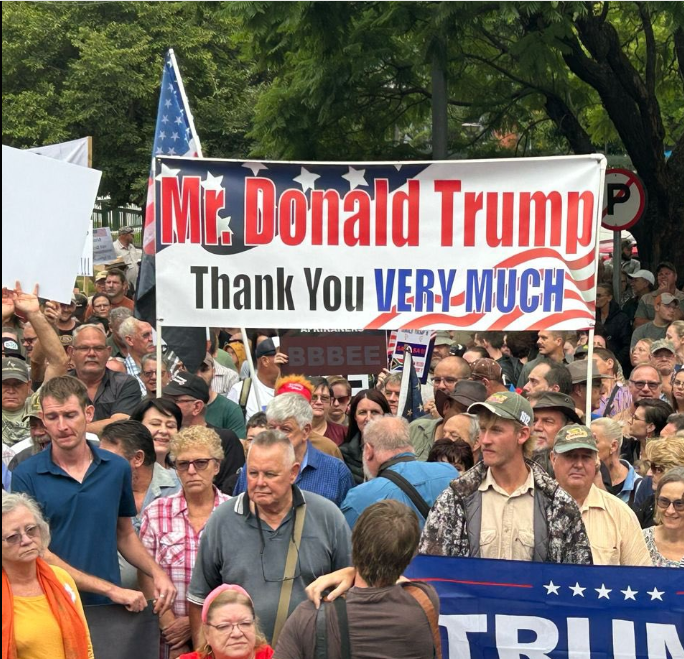Cape Town – South Africans applying for refugee status in the United States risk deportation if they lie or omit important information during the process.
This warning was shared by Errol Langton, an Afrikaner who recently resettled in Alabama under a US programme introduced by President Donald Trump for minorities allegedly facing racial discrimination in South Africa.
Talking during a conversation with US intel expert Chris Wyatt, Langton emphasised that US authorities made it clear that truthfulness was critical, cautioning against embellishment or omissions, which could lead to removal from the country.
“They made it very clear that if they do find that something was a lie or significant enough, you can be deported… Don’t try to embellish or blow it up to more than it was. Tell simple, straightforward facts,” The South African quoted him as saying.
Langton also spoke about the challenges and support his family has received, including Medicaid coverage and temporary financial aid, despite not yet having Social Security numbers or driver’s licenses.
He praised the US healthcare system and the kindness of locals, noting that his children are thriving.
According to msn, Langton also addressed criticism from South Africa, where his Afrikaner and farming identity has been questioned.
JUST IN
KZN,South Coast,resident Errol Langton & his 8 family members moved to the US,under false pretences as part of USA’s refugee programme
According to his neighbours he never own or work in any farm in South Africa
#Trump @realDonaldTrump @SecRubio Dove Lilepo Dlamini pic.twitter.com/K96Wu3WcF1
— Rush News (@RushNews5) May 17, 2025
He dismissed accusations of opportunism and clarified that the refugee programme was for persecuted minorities, not just white farmers. Despite controversy over his claims and background, Langton insists he is both an Afrikaner and a farmer, even if others disagree.
Similarly, the US Embassy warned applicants against submitting fake documents, labelling it as fraud with long-term consequences.
According to The South African, applications are now handled by RSC Africa, with interviews conducted in Sandton or Tshwane, and applicants must provide detailed statements explaining how they face persecution based on race, religion, nationality, political opinion, or social group.
Compiled by Betha Madhomu


